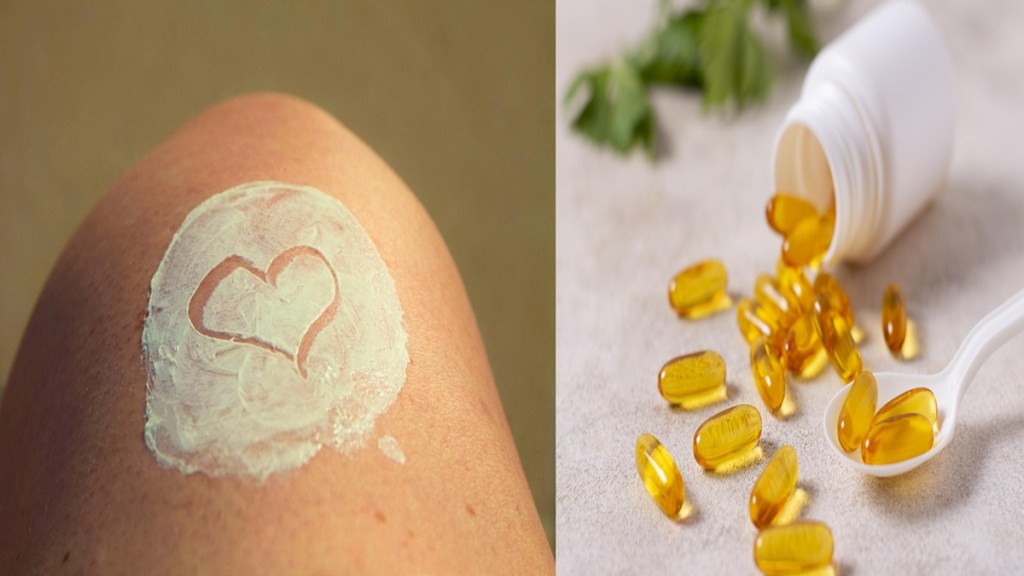Skin cancer has become a significant global health concern due to its rising incidence across various populations. The primary risk factor for skin cancer is prolonged exposure to ultraviolet (UV) radiation, which damages DNA and induces mutations in skin cells, leading to malignancies, Dr Aravind Badiger Technical Director BDR Pharmaceuticals told Financial Express.com.
Consequently, researchers and healthcare professionals have focused on preventive strategies aimed at reducing skin cancer risk. Among these, vitamin D and sunscreen have emerged as key topics of discussion within the pharmaceutical and dermatological industries. This article explores the protective role of vitamin D in reducing skin cancer risk and examines the effects of sunscreen—both in shielding against UV damage and its potential impact on vitamin D synthesis.
Vitamin D is essential for overall health, particularly bone integrity and immune function. It is primarily synthesized when UVB radiation from sunlight interacts with epidermal cells in the skin. Growing evidence suggests that vitamin D may also play a protective role in preventing certain cancers, including skin cancer. It regulates various cellular processes, such as differentiation, apoptosis (programmed cell death), and immune system modulation—all crucial for inhibiting tumor development. Recent case-control and experimental studies indicate that vitamin D may reduce the onset of non-melanoma skin cancers, including basal cell carcinomas and squamous cell carcinomas, by promoting DNA damage repair following UV exposure.,” Dr. Badiger revealed.
Vitamin D synthesis is a natural consequence of sun exposure, and it plays a vital role in immune system function while potentially inhibiting cancer cell proliferation. Although the exact mechanisms underlying vitamin D’s antineoplastic activity remain under investigation, maintaining optimal vitamin D levels appears to offer promising benefits in reducing skin cancer risk.
However, the balance between vitamin D synthesis and the use of sunscreen remains a topic of debate. Sunscreen is widely regarded as an essential tool in preventing skin cancer by blocking or absorbing UVB rays that cause DNA damage. Broad-spectrum sunscreens with active chemical ingredients, such as zinc oxide, titanium dioxide, and various chemical filters, provide effective UV protection across different skin types, reducing the likelihood of UV-induced skin malignancies.
A common concern is that sunscreen use may suppress the skin’s ability to produce vitamin D, given that it blocks UVB radiation. However, research suggests that while sunscreen may reduce vitamin D synthesis, it does not entirely eliminate it when applied correctly. Proper sunscreen application and reapplication may slightly diminish vitamin D production, but brief sun exposure—such as a short walk outdoors—is typically sufficient to maintain adequate vitamin D levels without significantly increasing skin cancer risk.
For individuals at risk of vitamin D deficiency—particularly those with limited sun exposure or living in regions with low sunlight—supplementation remains the most reliable option. To support adequate vitamin D levels without excessive sun exposure, pharmaceutical companies have developed high-quality vitamin D supplements. These are particularly beneficial for individuals who cannot obtain sufficient vitamin D from dietary sources or natural sunlight, including those with darker skin tones or those who spend most of their time indoors,” he emphasised.
As skin cancer rates continue to rise, striking a balance between UV protection and vitamin D synthesis is crucial. Ongoing research and collaboration between dermatologists, oncologists, and pharmaceutical experts will be instrumental in developing strategies that ensure both effective skin cancer prevention and adequate vitamin D levels for optimal health, he added.

